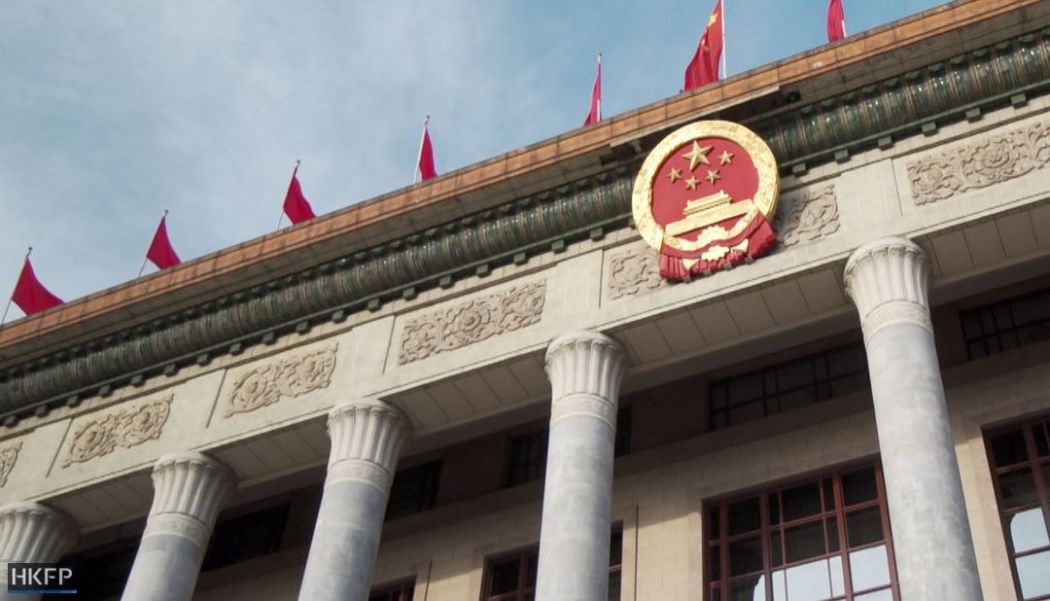China’s top legislature has passed a decision to insert the new national anthem law into the Annex III of the Basic Law, Hong Kong’s de facto constitution.
The Standing Committee of the National People’s Congress (NPC) made the decision on Saturday. The Hong Kong government has said it will devise local legislation procedures following the NPC’s ruling.

The maximum penalty for disrespecting the anthem on the mainland was set as three years in prison. The Hong Kong government has said it will take reference from the existing national flag and emblem law, which also has a maximum penalty of three years in prison.
The rules came as Hong Kong football fans have been repeatedly booing the Chinese national anthem, March of the Volunteers, at matches.
Retroactive power?
The local government has been unclear over whether the local version of the law will have retroactive power. This week, Executive Councillor Ronny Tong warned that, legally, the authorities can enforce the law before local legislation is passed.
“I advise Hong Kong people not to test the law themselves, because if it’s in Annex III, theoretically speaking – as I’ve said – these acts will already be considered illegal,” Tong said.
Secretary for Constitutional and Mainland Affairs Patrick Nip said the government will consult the legislature and the public when enacting the new law locally.
The government echoed his words in a statement on Saturday: “During the legislative process, the HKSAR Government will carefully consider the views of the public and members of the Legislative Council.”

On Thursday, Chairman of the Basic Law Committee Li Fei said that Hongkongers will have to stand up when the anthem plays at the Happy Valley and Sha Tin racecourses. He added that it will become compulsory to play the national anthem in primary and secondary schools
